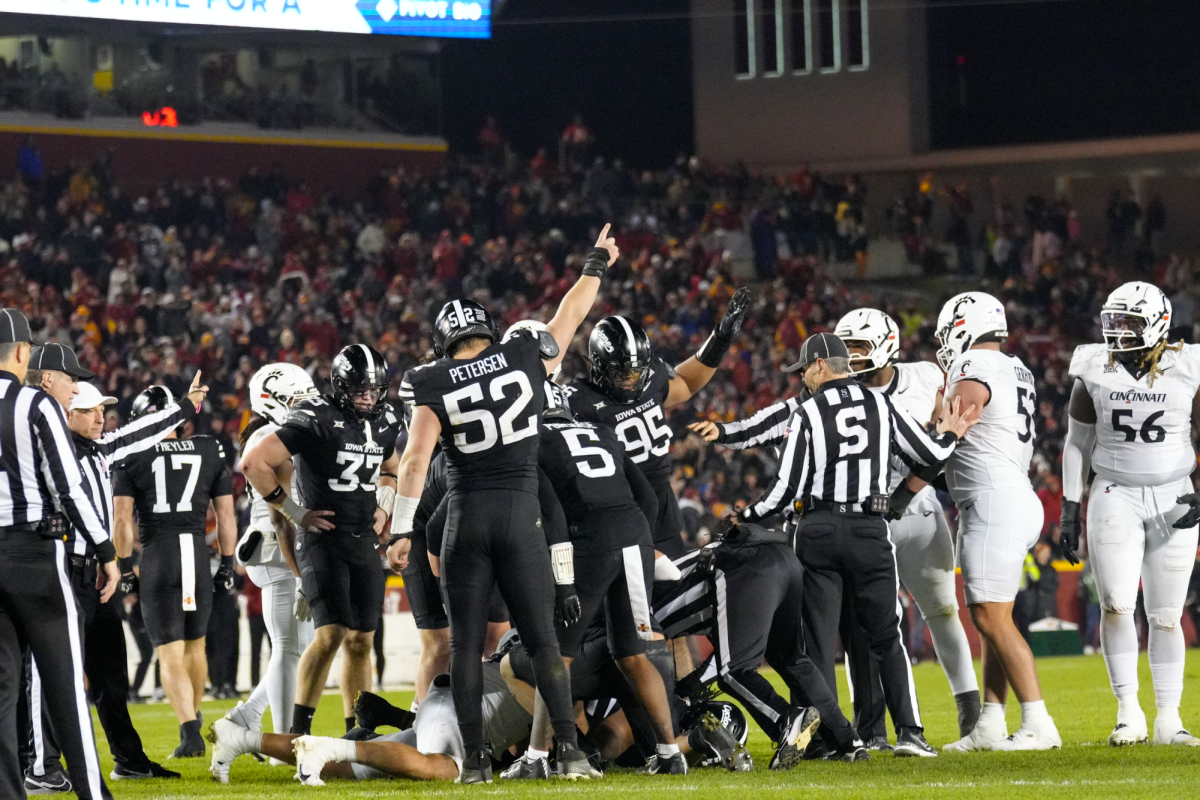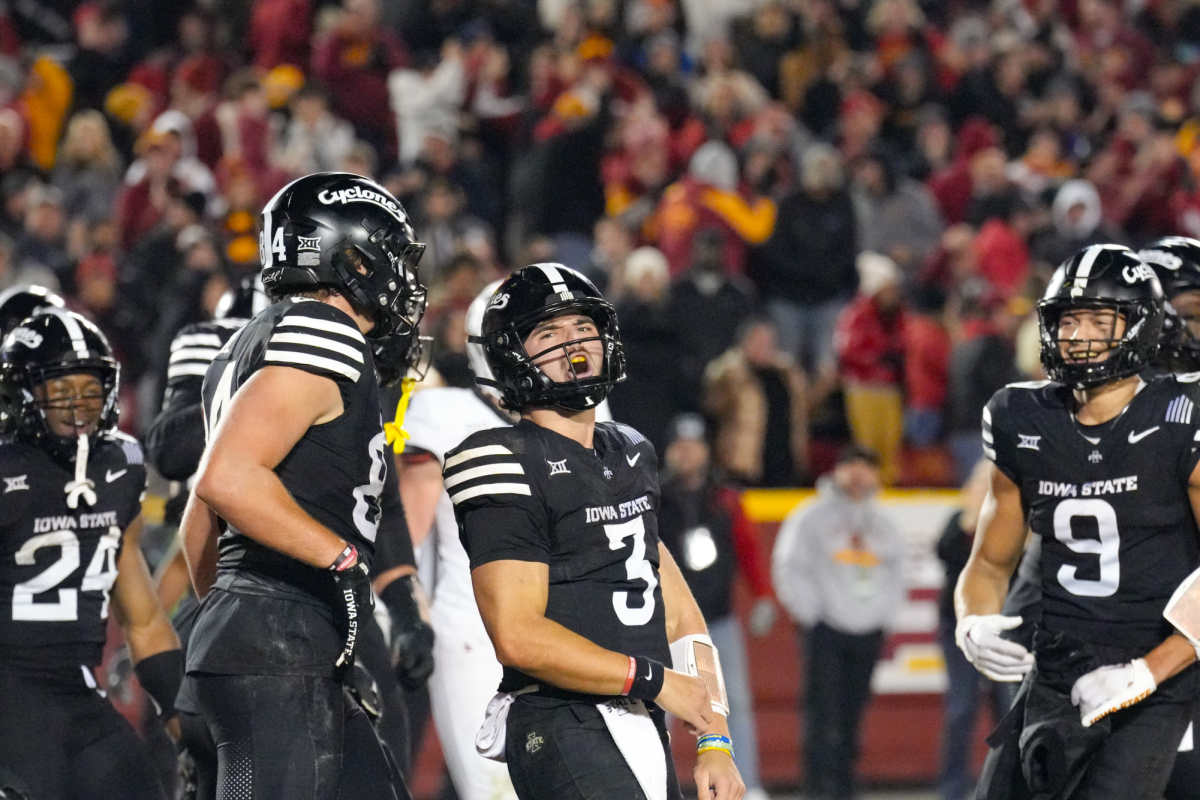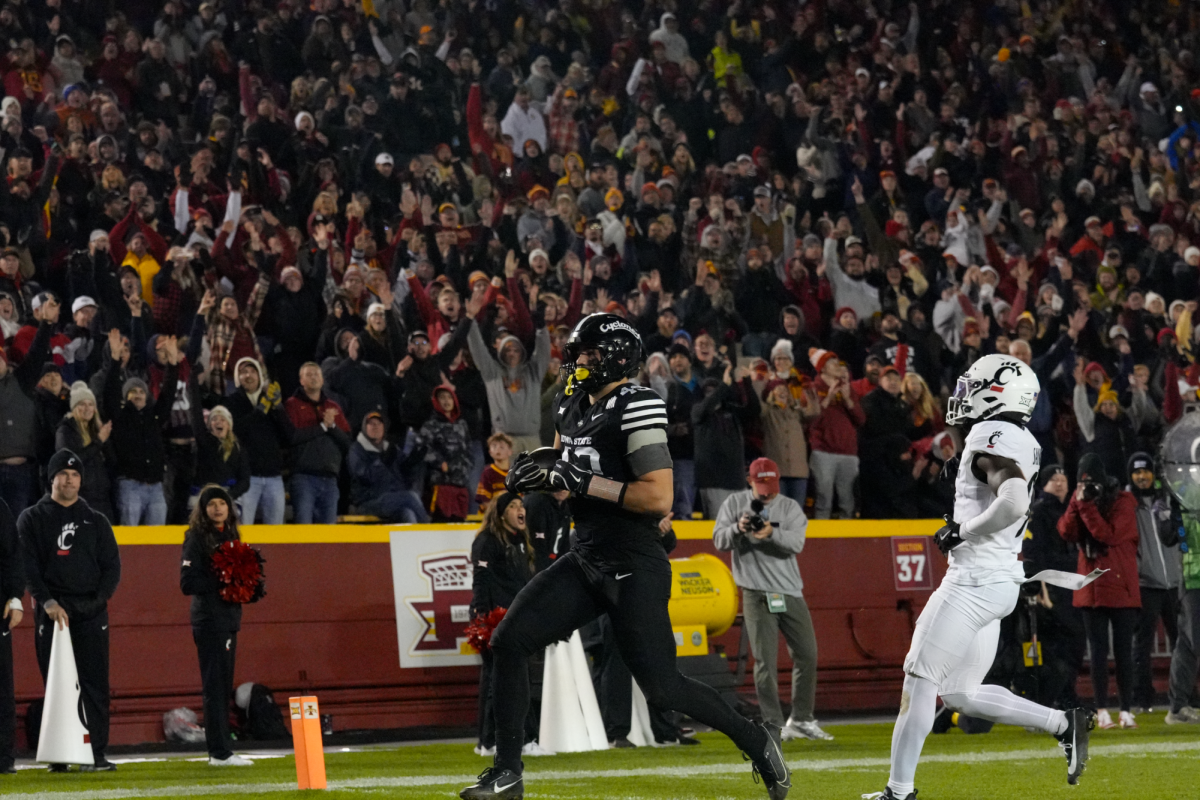Blue October’s songs look at serious issues
February 20, 2004
Blue October has been playing shows constantly throughout the years, and singer Justin Furstenfeld says the band has no plans to settle down any time soon.
“I’m used to hotels,” he says. “We like to stay out on the road. We just love the lifestyle of living on the road.”
Furstenfeld says it would be nice to take a break so he could stay at home, order pizza and relax, but he enjoys touring. However, he says he might eventually take a break from his constant road schedule to record and do some producing.
“I’ve started producing a few bands already,” he says. “I just want to be able to go down in my living room and just chill out, make dinner, strum on the acoustic guitar, play piano — that type of thing.”
Furstenfeld says the band has performed in Iowa before at the Iowa State Fair, as part of a lineup that included Vertical Horizon, Sister Hazel and Big Head Todd and the Monsters. Blue October has also been featured on television, including a recent appearance on MTV2’s “Subterranean.” The band also had a chance to hang out on FUSE TV’s “IMX.”
Furstenfeld says Blue October shows feature several different elements. His favorite comes toward the end.
“It’s different. It’s real. It’s honest. It’s scary. It’s emotional. It’s a roller coaster. There’s a lot of things talked about and a lot of things sang about that need to be,” he says. “One of my favorite parts is at the end when I kind of ramble on for a while and the music is still playing.”
Furstenfeld says his songs address issues he feel are legitimate and ones he feels will touch people. The band’s song “Razorblade” is an example of an issue he has strong feelings about.
“You see all over the TV and read what’s going on with preachers,” he says. “Religion is supposed to be a foundation where you go for comfort, but now you have preachers who like to touch little kids.”
Furstenfeld says “Razorblade” is also about hypocrisy and accountability within religion.
“The one thing you learn in elementary school is to hold yourself accountable if you make a mistake,” he says. “From my viewpoint, nobody held themselves accountable.”
The other issue Furstenfeld says needs to be discussed is file sharing.
“I don’t agree with stealing music,” he says. “Somebody brings a pocket recorder into the show and next thing you know, you have really crappy-sounding songs all over the Internet, and that’s how people will get first impressions of you.”
Furstenfeld says the best advice he’s received about being a musician came from another man who’s dealt with the difficulty of bootleg recordings.
“I saw Eddie Vedder on an interview one time when I was a kid,” he says.
“He said that if you don’t come off stage all scratched up and bruised up, you didn’t play hard enough.”






